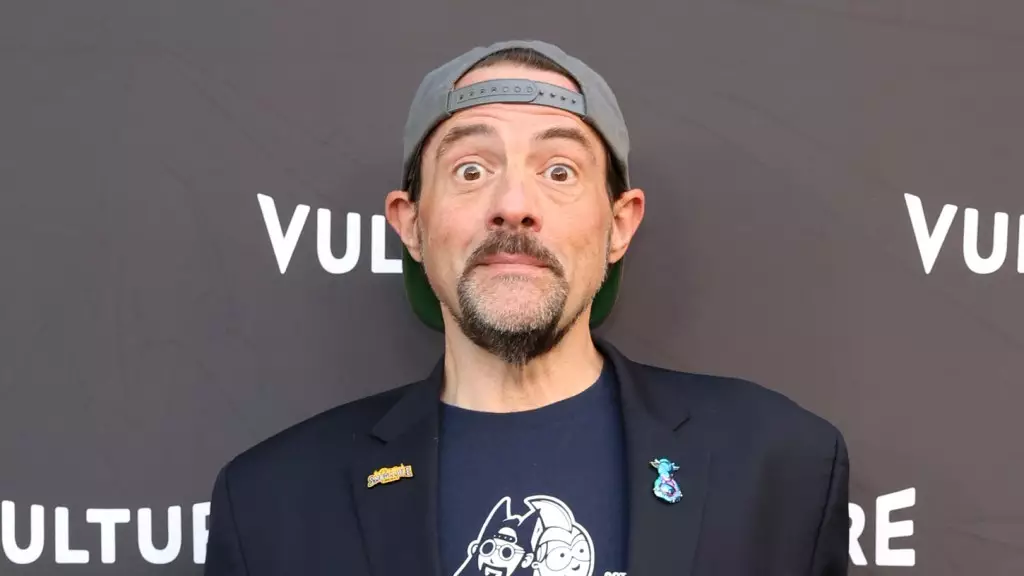Kevin Smith, renowned for his unapologetic comedic genius and distinct cinematic voice, is making headlines once again as he embarks on a journey to resurrect a piece of his cinematic legacy: the much-loved 1999 film, Dogma. During a recent Dogma Confessional event at the Vulture Festival, Smith tantalizingly revealed his plans for a sequel that promises to bring back some significant stars while navigating the delicate waters of creative nostalgia.
Announcing a sequel to Dogma, a film that has both polarized and entertained audiences, raises several compelling questions. Dogma introduced an unconventional narrative interwoven with religious satire, centering on two fallen angels, played by Ben Affleck and Matt Damon, who seek a loophole to return to heaven. As Smith gears up for this ambitious project, he openly acknowledges the potential backlash from purists who fear that revisiting such a beloved work could lead to ruin rather than revival.
Smith’s candid admission, “Some people will be like, ‘Don’t f—ing touch it. You’ll ruin it,'” reflects a self-awareness that is often lacking in contemporary film remakes and sequels. With his characteristic humor, he reassures fans of his commitment to authenticity while simultaneously acknowledging the inherent risks involved in such creative endeavors. This balance of respect and irreverence is part of what shapes Smith’s enduring appeal.
In the original Dogma, the chemistry between Affleck and Damon, both screenwriters and actors, added a layer of richness to the narrative. Smith expressed confidence that both would reprise their roles, a nod to a cultural epoch defined by their earlier achievements in Good Will Hunting—a film Smith was instrumental in popularizing. Smith’s assertion that they “owe” him for their last collaboration cleverly ties their past to the present, setting the stage for an endearing reunion.
The anticipation of not just cameos but potentially significant roles for Affleck and Damon is an intriguing development. Their involvement comes with a blend of nostalgia and curiosity—viewers are left wondering how these characters have evolved since their last appearance. The narrative promise of returning to the fantastical world that Smith created adds depth and dimension to the existing lore, engaging both new viewers and die-hard fans alike.
The film’s 25th anniversary marks a pivotal moment for Dogma, as it transitions from cult classic to a projected mainstream revival. As mentioned in Smith’s announcements, the film’s distribution rights have recently changed hands, leading to fresh possibilities. This move not only allows for re-releases and potentially streaming but opens the door for extended storytelling avenues—be it prequels, sequels, or even television adaptations.
Such developments underscore a greater trend in contemporary storytelling that seeks to deepen narratives and expand universes. This evolution is particularly significant in an era where audiences crave multifaceted stories that go beyond traditional linear storytelling. Smith’s acknowledgment that “all those people who worked in it are still viable” hints at a collaborative environment that could incorporate the original cast alongside fresh talent, adding new layers to the beloved narrative.
However, the production of a sequel brings with it certain ethical considerations—especially in a post-#MeToo world. Kevin Smith’s previous statements regarding his experience with Harvey Weinstein underline a cultural critique that continues to resonate. Smith’s willingness to donate residuals from his past works to initiatives supporting women in film indicates a desire for accountability and growth.
As the film industry evolves, so too must the narratives it portrays. This new chapter for Dogma could serve as a vessel for a broader dialogue regarding representation and responsibility in storytelling, ensuring that the sequel does not merely capitalize on nostalgia but also reflects the contemporary culture in which it is birthed.
With the resurrection of Dogma on the horizon, fans eagerly await what Kevin Smith will deliver. The blend of humor, cultural criticism, and community engagement that defined the original film sets a promising foundation for the sequel—if Smith embraces the challenges ahead rather than shying away from them. As he confidently steps into this new phase, it is a story worth watching, not just for its nostalgia but for the potential it holds in addressing modern societal themes, enriching the original narrative while paving the way for a new generation of fans.

Leave a Reply